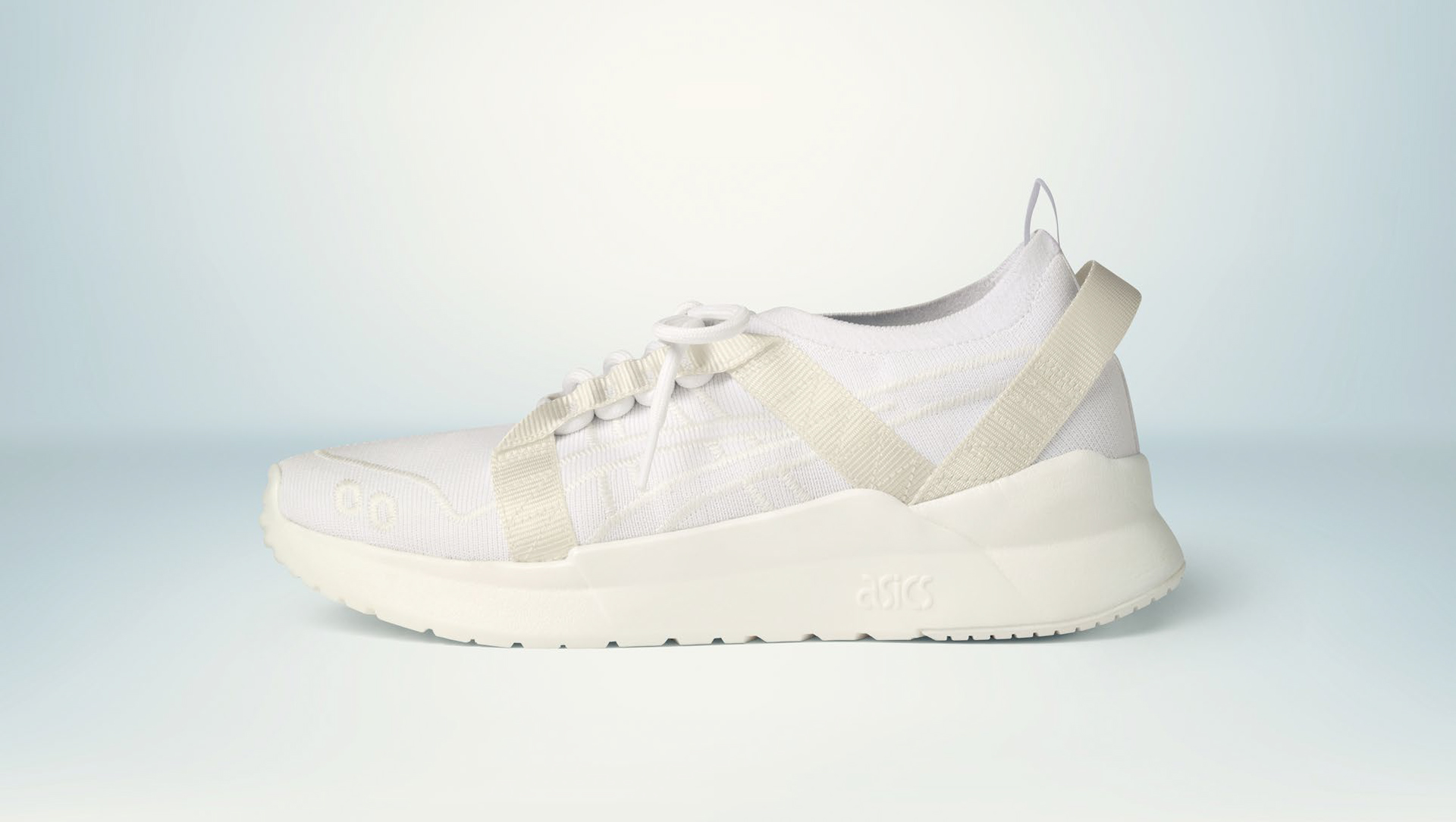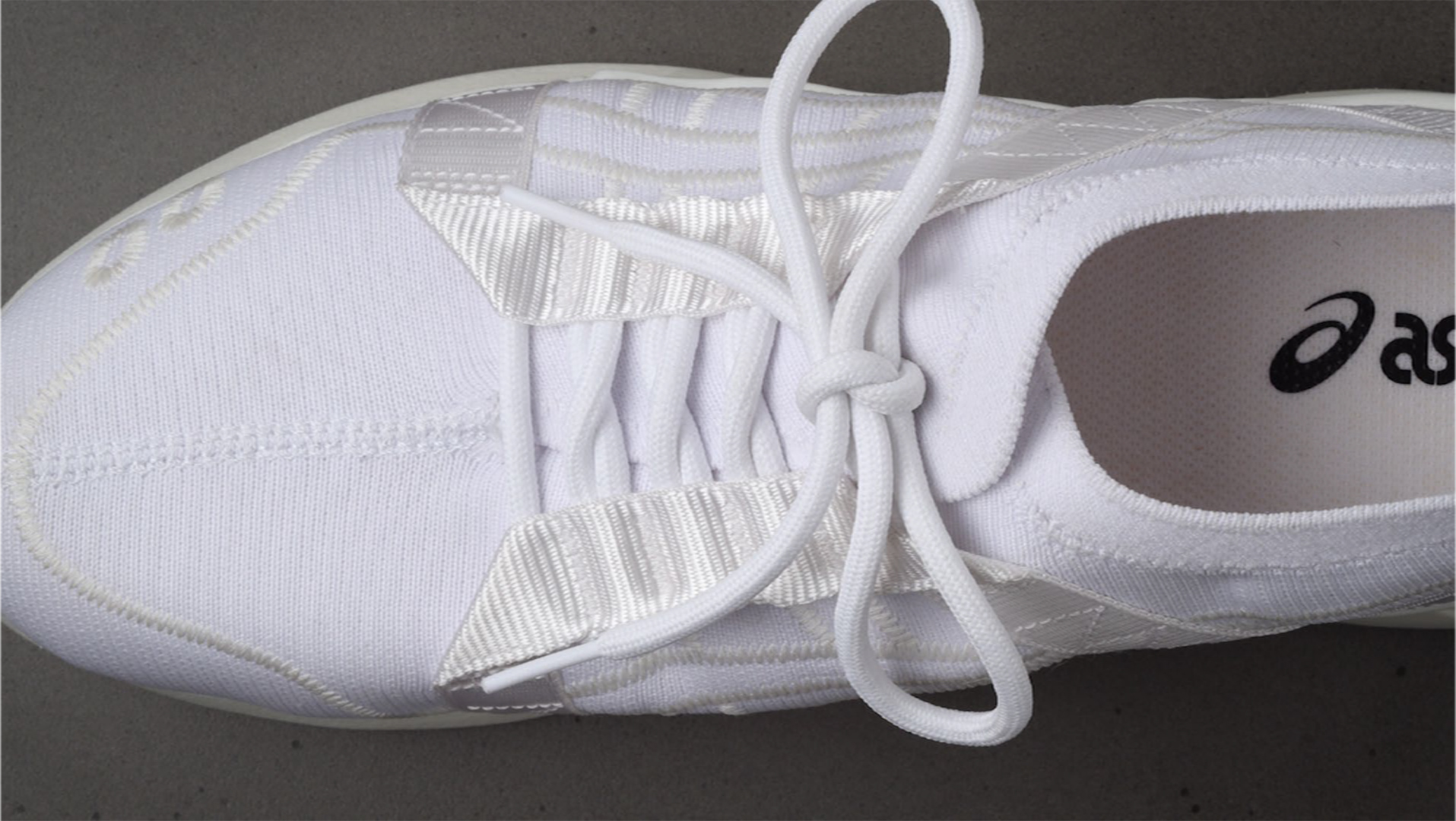ASICS launches "lightest ever CO2 emissions sneaker", the GEL-LYTE III CM 1.95, in the most ASICS way possible
I went on a press trip to ASICS' HQ in Japan – virtually


It feels like I write about sustainable sneakers on a daily basis nowadays. And while that statement might be a bit of a stretch, 2022 is indeed the year when most big sports manufacturers started putting their money where their mouths are by releasing products and services laser-focused on sustainability. The latest big-ticket brand to join the sustainability bandwagon is ASICS, which today announced the lightest CO2 emissions sneaker ever, the all-white GEL-LYTE III CM 1.95.
And ASICS being ASICS, they launched the shoes in the most ASICS way possible by 'flying' journalists out to Japan, virtually, an effort as hilarious as it sounds. Don't get me wrong; I totally understand the concept of reducing the launch's carbon footprint by not physically flying people to Japan from around the world – taking us to the HQ via pre-recorded presentations and Zoom-enhanced Q&As is certainly less taxing on the planet.
To be fair, I know as much about the sneakers now as I would have if I were taken to Japan; I might not be able to ask as many questions as I did when I was in Portland for the Adidas 4DFWD 2 launch recently, but I know the gist: the innovative GEL-LYTE III CM 1.95 is in fact the first step towards the ultimate goal of ASICS, which is to achieve net-zero emissions by 2050, 10 years in the making.

The ASICS GEL-LYTE III CM 1.95 is able to reduce its carbon footprint to a total of 1.95kg CO2/pair by reducing emissions at each stage of the product lifecycle, which are Materials & Manufacturing (1.33 kg), Transportation (0.15 kg), Use (0.03 kg) and End-of-life (0.43 kg). As you can tell, manufacturing and materials are responsible for the majority of the sneakers' carbon footprint, but ASICS did its best to reduce the impact as much as possible by applying the below techniques/materials:
- Recycled and solution-dyed polyester for upper knit
- Recycled and solution-dyed polyester for sock lining mesh
- Carbon-negative foam made with bio-based material
- Carbon-negative foam made with bio-based material for sock lining
- Reduction of parts number and minimization of parts size
- Cutting loss reduction by arranging the shape of the parts
- Embroidery design with recycled and solution-dyed thread
- Recycled polyester for reinforcement materials in the quarter and heel part
- Recycled polyester textile for collar lining
- Recycled polyester shoelace
- Recycled polyester for the base layer of synthetic lining
- Hotmelt made of recycled TPU
- Optimization of packaging material (recycled box, removing wrapping paper and paper in shoes)
- Renewable energy sourcing in the manufacturing process
- Transportation strategy of using bio-fuel plan for the shipment
- Recycling efforts in our partner factory

I want to draw attention to the carbon-negative foam, which is made from a fusion of bio-based polymers derived partly from sugarcane (reminded me of the sugarcane-based foam of the Allbirds Tree Flyers). To improve softness, ASICS' new foam also features a Styrenic thermoplastic elastomer "SEPTONTM BIO-series" – the first ever use of this feature in a shoe midsole, according to ASICS.
The Japanese brand is adamant that it will be able to apply the learning from the creation process of the ASICS GEL-LYTE III CM 1.95 in other areas; I, for one, am eager to see a low-carbon version of some of the best running shoes, including the ASICS METASPEED EDGE+. Performance footwear is a whole different ballgame than sneakers, so I assume it will take a few years for ASICS to work out how not to sacrifice performance on the altar of sustainability.
The GEL-LYTE III CM 1.95 sneaker will be widely available to buy in-store and online from AW 2023. To find out more about the GEL-LYTE III CM 1.95 and ASICS' sustainability commitments, please visit ASICS today.
Get all the latest news, reviews, deals and buying guides on gorgeous tech, home and active products from the T3 experts

Matt Kollat is a journalist and content creator for T3.com and T3 Magazine, where he works as Active Editor. His areas of expertise include wearables, drones, action cameras, fitness equipment, nutrition and outdoor gear. He joined T3 in 2019.
His work has also appeared on TechRadar and Fit&Well, and he has collaborated with creators such as Garage Gym Reviews. Matt has served as a judge for multiple industry awards, including the ESSNAwards. When he isn’t running, cycling or testing new kit, he’s usually roaming the countryside with a camera or experimenting with new audio and video gear.